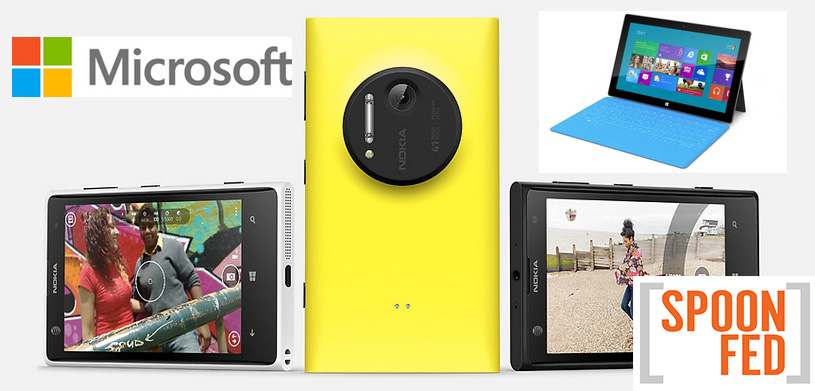Beneath the Surface: The Real Reason Microsoft Bought Nokia
Sign up to receive The Snapshot, a free special dispatch from Laptop Mag, in your inbox.
You are now subscribed
Your newsletter sign-up was successful
Microsoft just spent about a tenth of its cash to scoop up Nokia, a deal that makes sense on many levels. For $7.2 billion, Microsoft gets Nokia's handset business, as well as the right to use patents and such services as Here for mapping. Plus, Microsoft gets a proven leader in Stephen Elop, who bet the farm on Windows Phone and has seen some success with the Lumia line. If Microsoft is still working on a Surface phone, it just took a back seat -- and it should.
Elop will now become executive vice president of devices and services, but it's still under the Nokia brand. It remains to be seen what this means for Microsoft's own mobile hardware efforts, but Microsoft simply can't afford a repeat of the Surface in the phone market. Despite a glitzy marketing campaign, the Surface tablet has failed to catch on with consumers, while Nokia has an established brand in mobile. Microsoft needs to leverage Nokia in order to make meaningful gains on Apple and Samsung.
MORE: 6 Things Microsoft's Next CEO Should Do
In fact, because the Surface has been such a thorn in Microsoft's side -- to the tune of a $900 million -- it's likely that any negative vibes from the Surface slate and its gimped Windows RT operating system would rub off on a Surface phone. Guilty by association would be a terrible way to go to market.
If you look at the Windows Phone ecosystem in terms of hardware, there really isn't one. Nokia leads the way by a long shot, accounting for 81.6 percent of Windows Phone sales. One could argue that OS licensees HTC and Samsung will be even less likely to develop Windows Phone handsets now that Nokia and Microsoft are one, but their support has been lukewarm as of late.
Nokia having that kind of share in Microsoft's OS couldn't be ignored, especially when some analysts theorize that Nokia was mulling a move away from Windows Phone.
While pricey, the Nokia Lumia 1020 is an exciting and innovative Windows Phone that runs circles around the competition with its 41-megapixel camera. Nokia knows how to make great hardware, and it has also managed to innovative on top of a relatively closed platform with its Pro Camera app, City Lens augmented reality app and Music service. It's Microsoft's job to make devices like this available through more carriers than just AT&T and to push Windows Phones into lower price points to compete in emerging markets.
Sign up to receive The Snapshot, a free special dispatch from Laptop Mag, in your inbox.
A Surface phone may very well still be in the works, but Microsoft should seize this opportunity to improve its software and lean on Nokia for hardware. Windows Phone simply hasn't kept up with other platforms when it comes to apps but also basic OS functionality. There's no easy way to change settings as there is in Android and iOS 7, closing apps takes too many steps, and important things such as battery life and signal strength are needlessly hidden. I would focus on those things before a Surface phone and let Nokia do what it does best.


